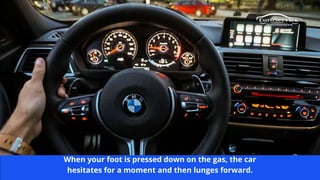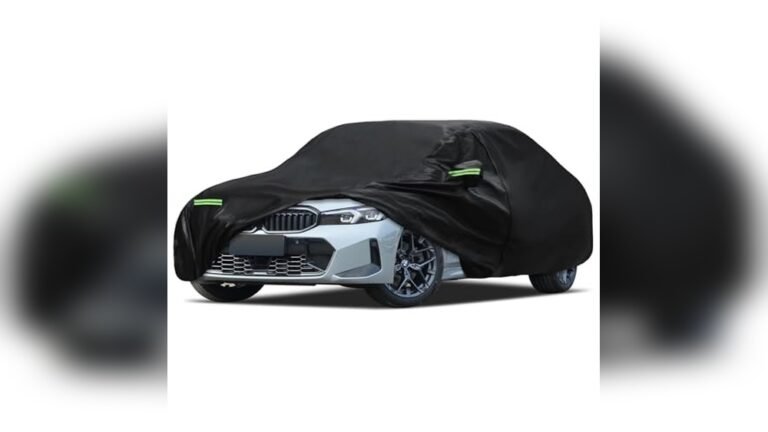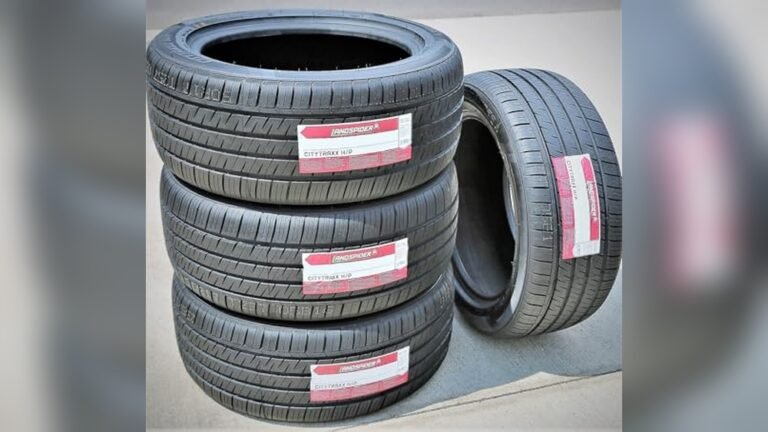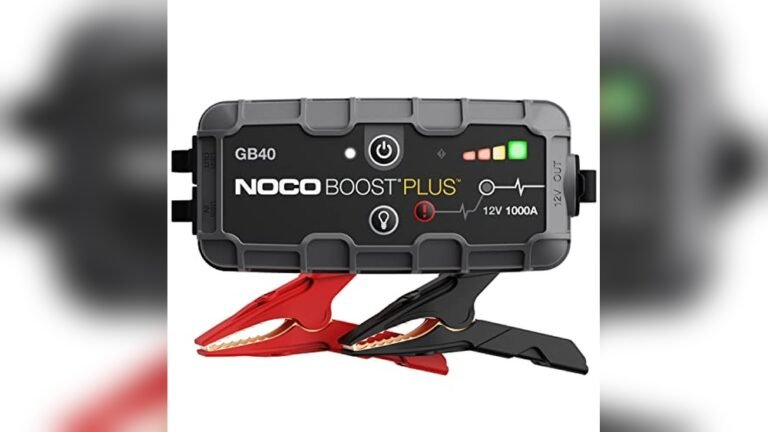If your BMW is jerking when accelerating, it could be due to a variety of issues such as a malfunctioning fuel system or a problem with the transmission. We will explore some common causes of this problem and discuss potential solutions to help you diagnose and resolve the issue.
Whether it’s a faulty spark plug or a clogged fuel injector, we will provide some troubleshooting steps that can help you get your BMW back to its smooth performance. So, if you’re experiencing jerking or hesitation while accelerating in your BMW, read on to find out what could be causing it and how you can fix it.
Understanding The Jerking Sensation
When your BMW jerks during acceleration, it can be an unsettling experience. Understanding the underlying causes and symptoms can help you address the issue promptly. Common symptoms often accompanying jerking include engine misfires, hesitation, surging, and rough idling. The manifestation of this issue can vary among different BMW models. For example, in the BMW 3 Series, jerking can be caused by a faulty fuel pump or clogged fuel injectors, while in the BMW X5, it might be due to a malfunctioning transmission. If you experience jerks while driving, it is important to take immediate steps to diagnose and resolve the problem. This can involve checking for any error codes, inspecting the spark plugs and ignition system, cleaning the fuel system, or seeking professional assistance. Addressing the jerking sensation promptly can help maintain the performance and longevity of your BMW.
Fuel System Issues
BMW jerking when accelerating can be a result of fuel system issues. Two common culprits are clogged fuel injectors and filters and fuel pump malfunctions. Clogged fuel injectors and filters can restrict the flow of fuel, leading to uneven acceleration and jerking. On the other hand, if the fuel pump malfunctions, it may not be able to deliver the right amount of fuel to the engine consistently, causing jerking sensations.
Proper fuel pressure is significant for the smooth operation of a BMW. A fuel system that doesn’t maintain the right pressure can cause jerking during acceleration. It is important to ensure that the fuel pressure is within the manufacturer’s specified range. Regular maintenance, such as cleaning the fuel injectors and replacing the fuel filters, can help prevent these issues and ensure the proper functioning of the fuel system.
Ignition System Malfunctions
The ignition system of your BMW plays a key role in ensuring a smooth and efficient acceleration. Two common malfunctions that can cause jerking during acceleration are worn spark plugs or coils and ignition timing problems.
Worn spark plugs or coils can lead to inconsistent firing of the cylinders, resulting in uneven power delivery. As a result, you may experience jerking or hesitation when accelerating. Regularly inspecting and replacing these components can help maintain optimal engine performance.
Ignition timing problems can also cause jerking during acceleration. If the timing is too advanced or too retarded, the fuel-air mixture may not ignite properly, leading to a loss in power and rough acceleration. It is crucial to have the ignition timing checked and adjusted by a qualified mechanic.
The condition of your ignition system directly impacts your engine’s performance. A malfunctioning ignition system can lead to decreased power, lower fuel efficiency, and an overall unpleasant driving experience. Therefore, addressing any issues with the ignition system promptly is essential to ensure a smooth and enjoyable ride.
Air Intake And Exhaust Blockages
One common cause of a BMW jerking when accelerating is air intake and exhaust blockages. A sign of air filter congestion is reduced engine power and poor fuel efficiency. The oxygen sensors and MAF, or Mass Air Flow sensor, play a crucial role in monitoring the air-to-fuel ratio and ensuring optimal combustion. A clogged catalytic converter, on the other hand, can lead to decreased engine performance and increased emissions. It is important to regularly inspect and clean or replace the air filters, oxygen sensors, MAF, and catalytic converter to maintain smooth acceleration and overall vehicle performance. It is advised to consult a professional mechanic to diagnose and address any issues related to air intake and exhaust blockages in your BMW.
Error Codes And Electronic Diagnostics
Error Codes and Electronic Diagnostics can help diagnose and resolve issues related to a BMW jerking when accelerating. One effective method to identify potential problems is by utilizing OBD-II scanners for fault codes. These scanners are designed to read the diagnostic trouble codes (DTCs) stored in the vehicle’s onboard computer system. By connecting the scanner to the OBD-II port, drivers can retrieve valuable error messages and gain insight into the underlying issues causing the jerking sensation. Interpreting common BMW error messages can help users understand the specific malfunction and guide them toward appropriate solutions. Examples of error codes may include issues with the engine, transmission, fuel system, or ignition. Properly understanding these error codes can aid in troubleshooting and potentially saving time and money on repairs.
Physical Inspections
Physical inspections of your BMW are an essential part of diagnosing any issue, especially if you are experiencing jerking when accelerating. One area to check for potential problems is vacuum leaks. Inspecting hoses, clamps, and connections is necessary as damaged or loose components can cause a disruption in the vacuum system. Regular maintenance checks are crucial to ensuring that all parts are in good condition and functioning properly. These inspections help to identify and address any potential issues before they worsen, minimizing the chances of experiencing jerking while accelerating. By regularly inspecting and maintaining your BMW, you can keep it running smoothly and prevent any major problems from arising.
Addressing Fuel System Problems
When your BMW starts jerking during acceleration, one possible cause could be a problem within the fuel system. Fuel injectors play a crucial role in delivering gasoline to the engine smoothly and efficiently. Over time, they can become clogged or dirty, affecting fuel flow and causing irregularities in performance.
Step 1: Cleaning the fuel injectors can be a cost-effective solution to alleviate the jerking issue. Several fuel injector cleaning kits are available in the market, enabling you to flush out any deposits or contaminants that may be inhibiting proper fuel delivery.
Step 2: If cleaning the injectors does not resolve the problem, consider replacing them. This can be a more complex task that may require professional assistance. Replacing faulty injectors will ensure optimum fuel flow and improve acceleration.
When to consider fuel pump replacement: In some cases, a faulty fuel pump can also create jerking issues. If cleaning or replacing the injectors does not solve the problem, it may be necessary to have the fuel pump inspected and potentially replaced.
Ignition System Repairs
When experiencing jerking while accelerating in your BMW, it is crucial to check the ignition system for potential issues. One common cause of this problem can be faulty spark plugs. To determine if your ignition coils need replacement, follow these steps:
- Start by locating the spark plugs. Consult your vehicle’s manual for their specific location.
- Make sure the engine is cool before starting the replacement process.
- Remove the ignition coil by gently pulling it out. Be careful not to damage the coil or wires.
- Inspect the coil for any signs of wear or damage, such as cracks or corrosion.
- If the coil appears damaged, it is recommended to replace it with a new one.
- Insert the new coil by pushing it firmly into place.
- Repeat these steps for each spark plug and coil.
Regular maintenance and timely replacement of worn-out ignition components can help resolve jerking issues and ensure smooth acceleration in your BMW. Keep in mind that if these steps do not resolve the problem, it is best to consult a professional mechanic for further diagnostics and repairs.
Resolving Airflow Issues
A common issue that BMW owners may encounter is jerking when accelerating. This problem is often caused by airflow issues, which can lead to a lack of power and a rough driving experience. One of the first things to check is the air filters, as they can become clogged with dirt and debris over time. If the filters are dirty, they should be replaced or cleaned depending on the type of filter used in your vehicle.
Another potential culprit for the jerking sensation is malfunctioning oxygen sensors. These sensors monitor the amount of oxygen in the exhaust system and help the engine adjust the air-fuel mixture for optimal performance. If the oxygen sensors are not working properly, it can result in a jerky acceleration. Replacing these sensors can often resolve the issue.
In some cases, the problem may lie with restrictions in the exhaust system. Over time, the exhaust system can become clogged with carbon deposits, impacting airflow and causing the engine to jerk. Dealing with these restrictions may involve cleaning the exhaust system or replacing parts, such as the catalytic converter.
By addressing these common airflow issues, BMW owners can resolve the problem of jerking when accelerating and enjoy a smoother driving experience.

Credit: www.slideshare.net
Frequently Asked Questions On Bmw Jerking When Accelerating
Why Is My Bmw Jerking When Accelerating?
If your BMW is jerking when accelerating, it could be due to a variety of reasons such as a faulty fuel injector, clogged air filter, or transmission issues. Consult with a certified mechanic to diagnose and fix the specific problem to ensure optimal performance of your vehicle.
What Are Common Causes Of Jerking While Accelerating In A Bmw?
Several common causes of jerking while accelerating in a BMW include a malfunctioning Mass Airflow Sensor (MAF), worn spark plugs, a dirty fuel system, or a problem with the transmission. Proper diagnosis by a professional mechanic is essential to determine the exact cause and resolve the issue.
How Can I Prevent My Bmw From Jerking When Accelerating?
To prevent your BMW from jerking when accelerating, regular maintenance is crucial. Make sure to keep up with scheduled tune-ups, change spark plugs as recommended, and perform regular fuel system and air filter cleanings. Additionally, avoid aggressive acceleration and ensure your vehicle’s transmission fluid is at the appropriate level.
Conclusion
To solve the issue of your BMW jerking while accelerating, it is crucial to identify the underlying causes. From worn spark plugs to a faulty fuel pump, several factors could be contributing to this problem. Consulting a professional mechanic will help you diagnose and address the issue properly, ensuring a smooth and enjoyable driving experience in your BMW.
Remember, regular vehicle maintenance is key to preventing such complications and ensuring optimal performance. Choose confidence and reliability when it comes to your car.






